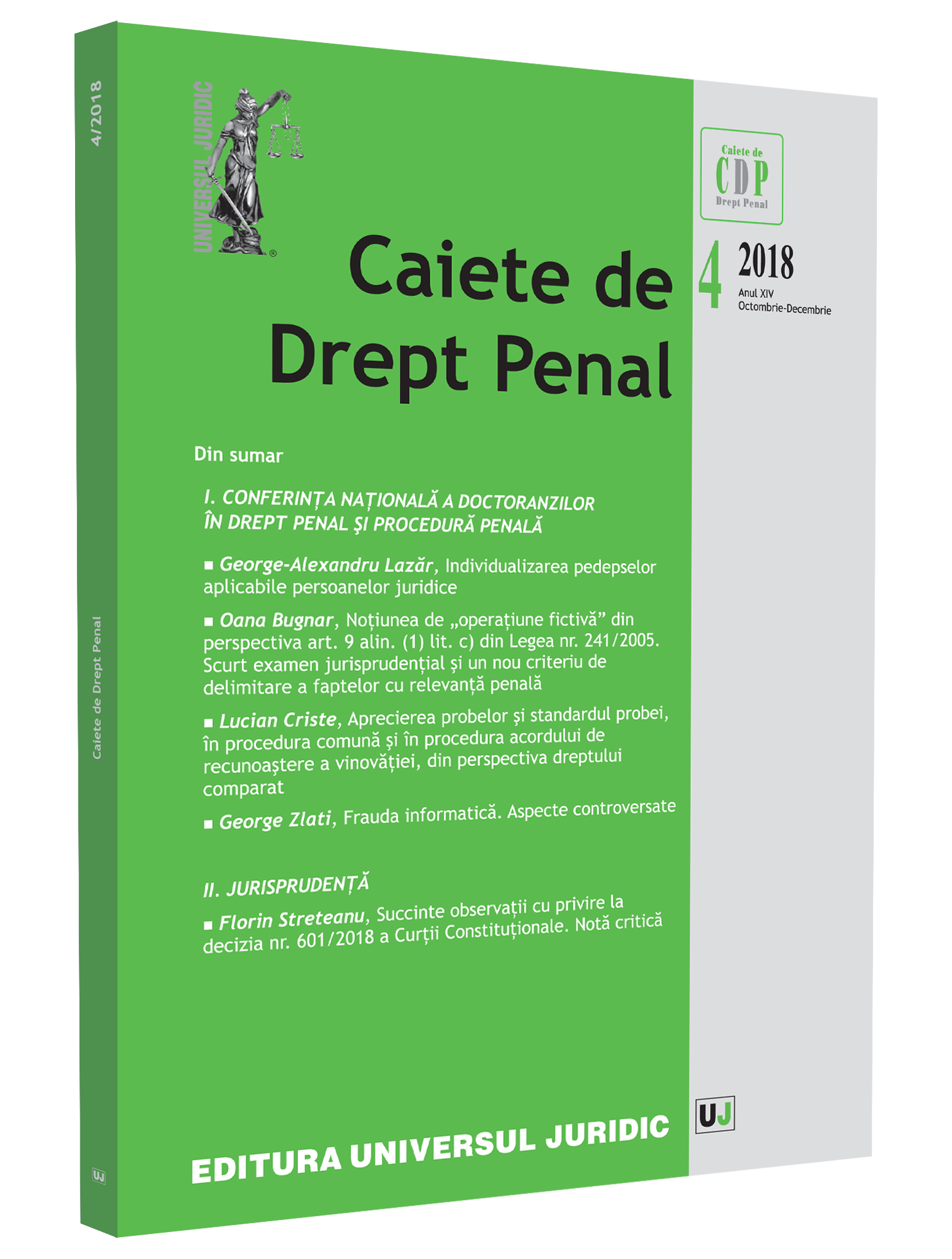Aprecierea probelor şi standardul probei, în procedura comună şi în procedura acordului de recunoaştere a vinovăţiei, din perspectiva dreptului comparat
Appraisal of evidence and the standard of proof in the common procedure and in the proceeding of the plea agreement, from a comparative law perspective
Author(s): Lucian CristeSubject(s): Law, Constitution, Jurisprudence, Civil Law
Published by: Universul Juridic
Keywords: standard of proof; beyond a reasonable doubt; balance of probabilities; clear and convincing proof; intimate conviction; evidentiary instructions; satisfied so that they feel sure; moral certainty;
Summary/Abstract: What prompted us to proceed with the present study is the issue of the standard of proof in the context of regulating accelerated procedures for the plea agreement. The study begins with a different presentation of the evidence assessment activity and with some brief considerations on the principle of free assessment of evidence, as these are governed by national law. Subsequently, we have defined the standard of proof as the degree or level of conviction established by law that must be attained by the court in order to be able to validly decide that the existence of the offence and the guilt of the defendant are proven. We have also shown that the standard of proof in criminal proceedings has both a regulatory function and a revealing function. Further on, after a brief presentation of the common law standards and the standard of intimate belief, we have resorted to a comparative analysis of the evidentiary standards applicable in criminal matters, emphasizing and appropriating those doctrinal views that find a proximity between the standard beyond a reasonable doubt and the standard of intimate belief, especially because both revolve around the concept of “certainty”. In the Romanian Code of Criminal Procedure, the legal norm setting the standard of proof provides expressly the subjective element that consists in the obligation of the court to convince itself that the allegation is proven, taking over the formula over a reasonable doubt from common law (Article 103 para. 2 Code of Criminal Procedure). We have analysed the relationship between the standard of proof and other criminal-law institutions, in the context in which, unlike other legislation that has established the standard beyond a reasonable doubt, the Romanian Criminal Procedure Code does not require the prosecutor to pursue set standard and the active role of the court, although it is no longer regulated as a principle – it is laid down by numerous legal provisions. Given these issues, but also for other reasons, we have concluded that in our legislation the standard beyond a reasonable doubt cannot produce full effects. In the last part, we have analysed the question of the standard of proof in the procedure of the plea agreement, concluding that the current Criminal Procedure Code does not impose on the prosecutor a standard of proof, but only for the court. Finally, we have briefly presented some aspects of the standard of proof in North-American law, in the context in which the plea-bargaining procedure is currently the main mechanism for solving cases of a criminal nature.
Journal: Caiete de drept penal
- Issue Year: 2018
- Issue No: 04
- Page Range: 77-115
- Page Count: 39
- Language: Romanian
- Content File-PDF

